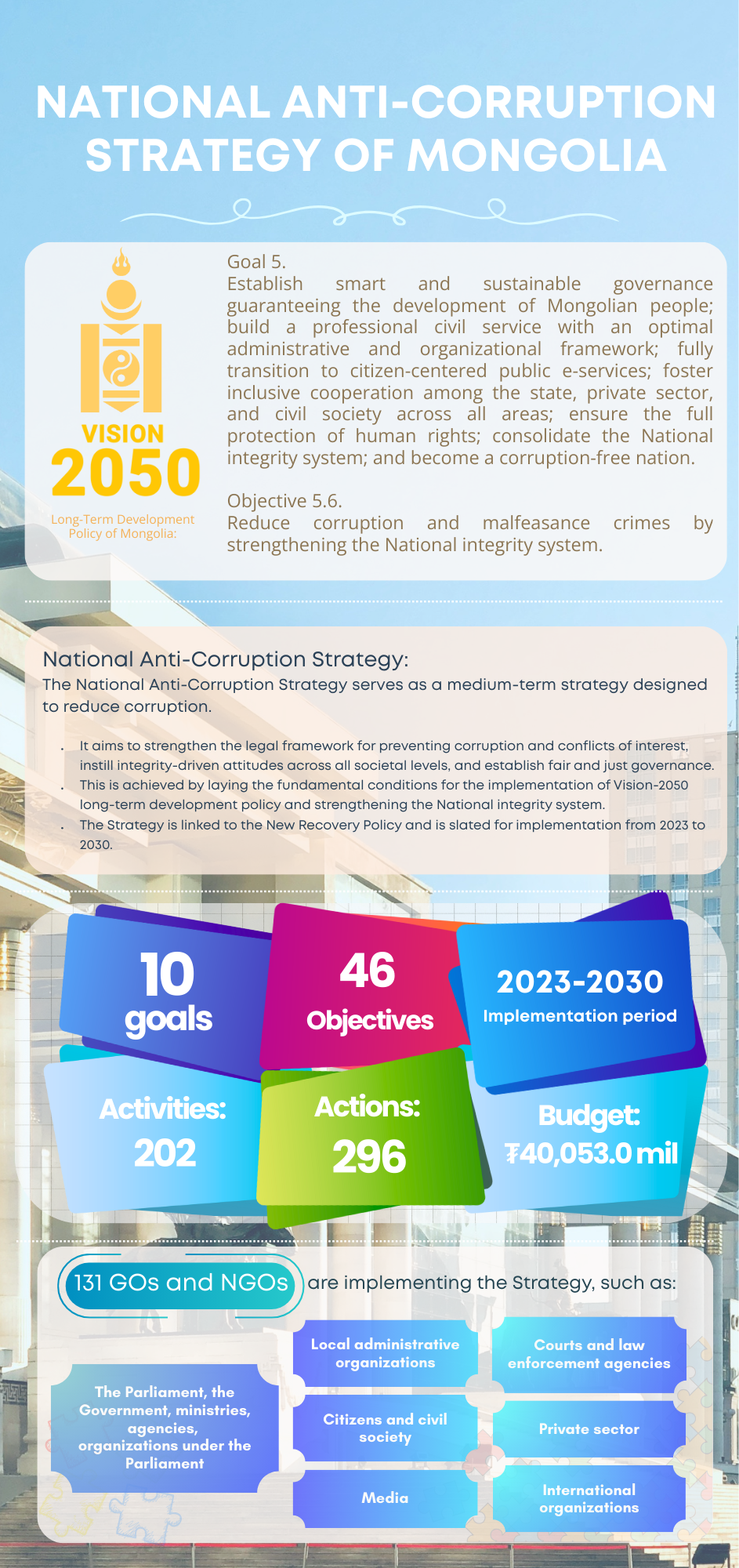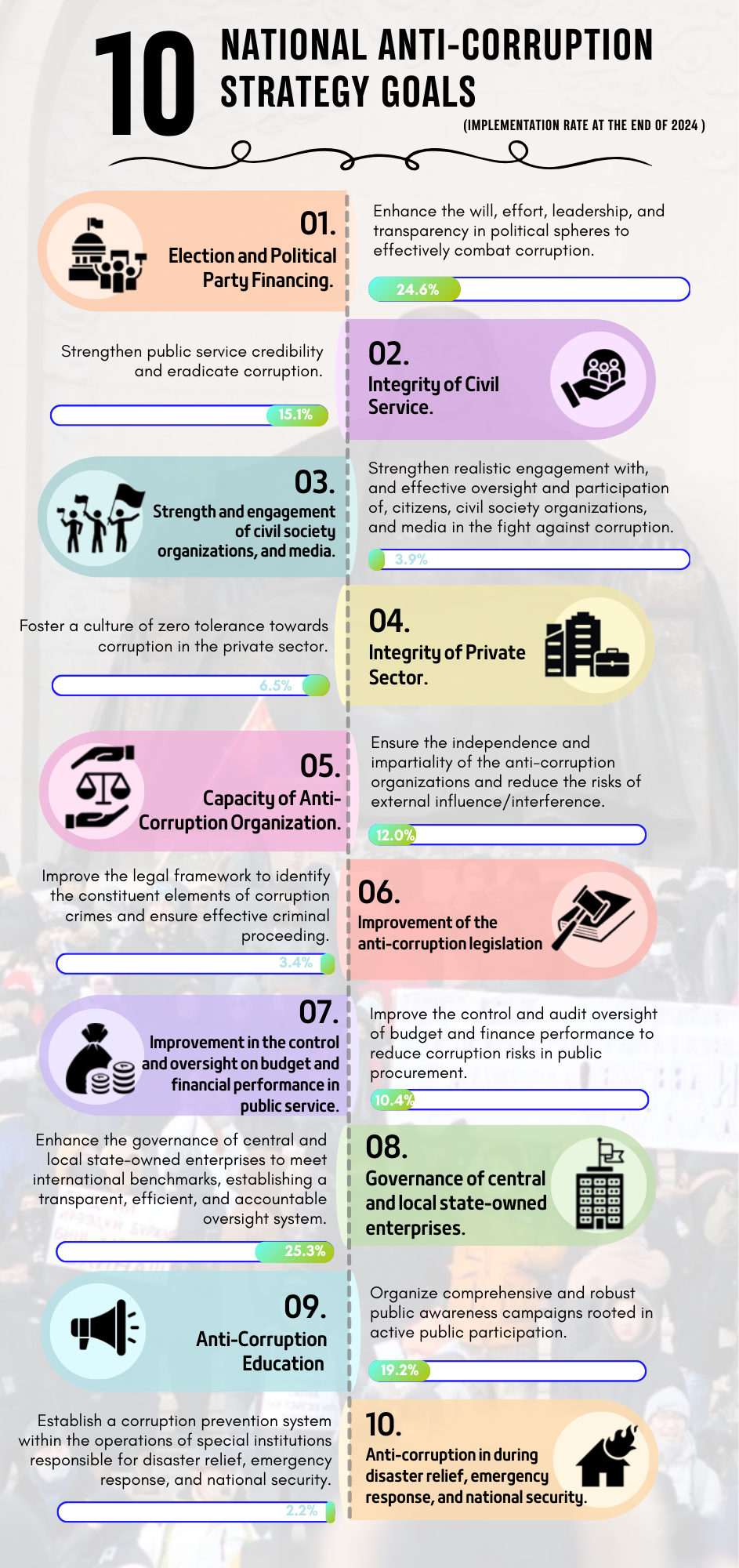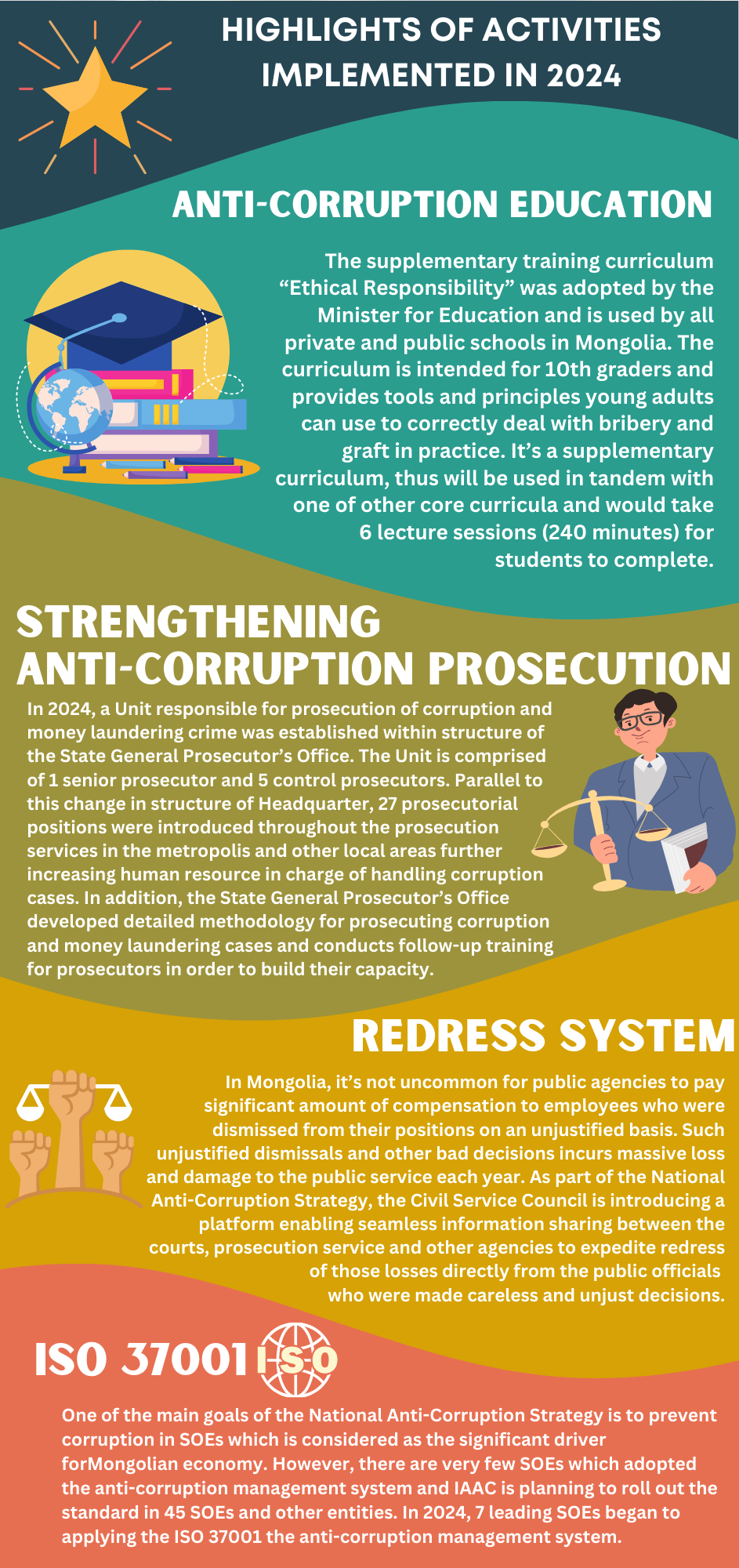National Anti-Corruption Strategy
Background
Influential people in politics, public life, and business occasionally abuse their power and positions of authority, granting undue priority to others, thereby restricting opportunities for citizens and creating inequality. This hinders the country’s development and negatively affects the evaluation of international organizations, leading to a decrease in public trust in the government.
It is therefore vital to implement a long-term and medium-term target program with measures to stop the abuse of positions of power, effectively fight corruption, and increase citizens' confidence in the government.
For this reason, the Mongolian Independent Authority Against Corruption (IAAC), or "Anti-Corruption Agency," was established, and the National Anti-Corruption Strategy was developed.
In 2020, the Mongolian Parliament (The State Great Khural) approved Vision 2050, which aims to “build smart and sustainable governance ensuring human development, foster a mature civil service with an optimal administrative and organizational structure, create fully functional and people-centered state e-services, and promote enhanced cooperation between the state, private sector, and civil society in all areas,” as well as develop respect for human rights and the equal application of the rule of law in Mongolia.
Article 2, provision 21.1 of the Mongolian Anti-Corruption Law stipulates that the Parliament of Mongolia approves the National Anti-Corruption Strategy and its action plan for implementation within the period specified in the strategy.
The IAAC adopted recommendations from international financial institutions and development organizations, basing the strategy on more than 40 laws, including the Criminal Law, the Anti-Corruption Law, the Law on the Regulation of Public and Private Interests in Public Service, and the Prevention of Conflict of Interest.
National Anti-Corruption Strategy and Action plan
Based on the above, a National Anti-Corruption Strategy aligned with Mongolia’s long-term development policies and objectives was developed in 2023 . This contains a total of 11 goals, 47 objectives, and 207 targeted activities. The strategy will be implemented from 2023 to 2030, in line with the implementation period of Mongolia's medium-term development programs.
On 30 June 2023, the State Great Khural approved Mongolia's third National Anti-Corruption Strategy (2023-2030) by Resolution No. 59/2023.
The Strategy covers areas such as political will, business integrity, inclusive policy development, strengthening engagement with the media and civil society, ensuring the independence of anti-corruption institutions, and overhauling the framework for implementing anti-corruption policies. It aims to strengthen the transparency of the audit system, enhance the governance of state-owned enterprises, reform educational content and programs at all levels, and establish a corruption prevention system for disaster relief, emergency response, and national security.
In the following year, the State Great Khural approved the Implementation action plan on 16 May 2024.
FYI:
The first-ever National Anti-Corruption Strategy was adopted on 4 July 2002. (See here)
The second National Anti-Corruption Strategy was implemented from 2016 to 2022. (See here)
Infographics about the NACS







